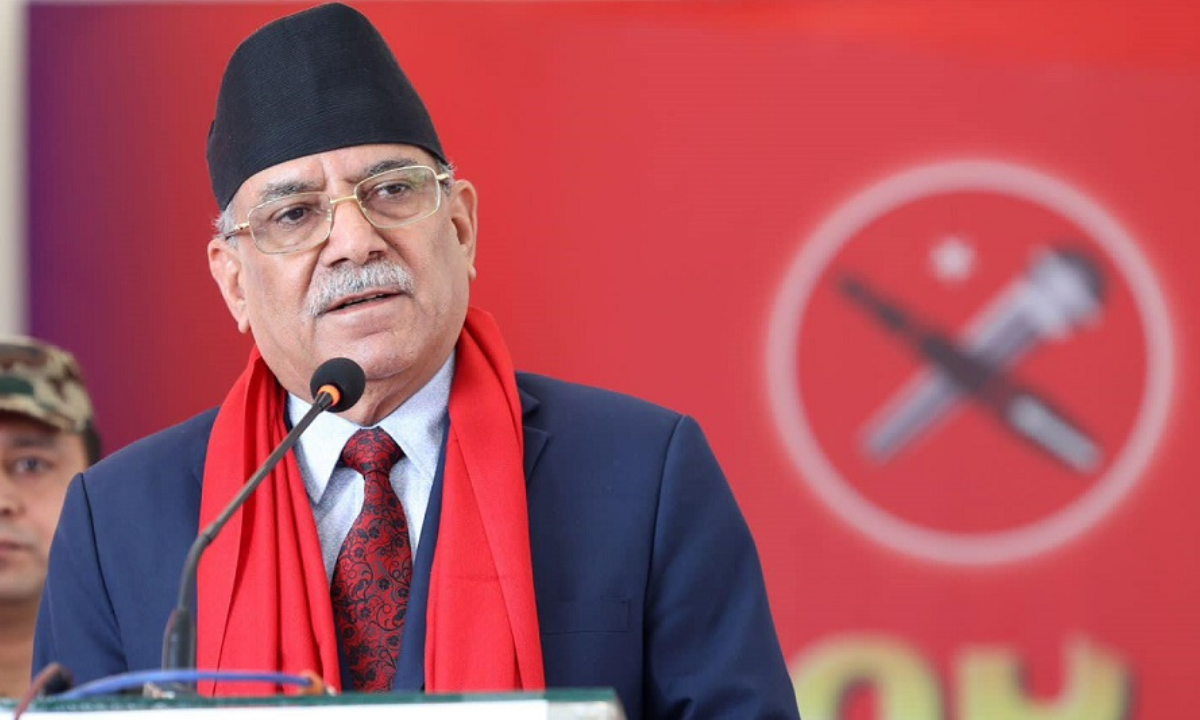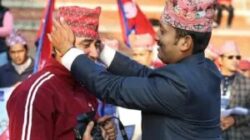The Chairman of the Nepal Communist Party (Maoist Centre), Pushpa Kamal Dahal Prachanda, seems to be in no hurry to unite the party at this moment. Due to his current mindset, the proposed unification with the Nepal Communist Party led by Biplab and the Nepal Socialist Party led by Mahindra Ray is being delayed. After leading the government for about 19 months, Prachanda, after stepping down from power on the 31st of Ashar, appears more focused on strengthening the party organization rather than hastily uniting with other leftist parties. During the meeting of the central committee on 8th Magh, Prachanda emphasized the need to strengthen the internal organization before uniting with other parties. According to one of the officials, “Prachanda hasn’t said that he won’t unite with like-minded leftist, communist, and socialist parties. First, we must be strong, and once the party is strong, unity with like-minded groups will be better.”
The central committee meeting had previously decided to form a high-level committee for talks with the Nepal Communist Party and the Nepal Socialist Party, among others, for unification. However, even after a month since the decision, no progress has been made. Spokesperson Agniprasad Sapkota explained that the delay in the implementation of the decision was due to the student elections. He mentioned that the decision would be implemented soon after the upcoming meeting, where the leaders would be assigned responsibilities and sent to the local areas.
Earlier, the General Secretary of the Nepal Communist Party (Biplab), Netra Bikram Chand Biplab, accused Prachanda of not wanting the party unification. In the central committee meeting of the Nepal Communist Party earlier this year, the decision to unite with the Maoists was made. However, after eight months, Prachanda showed no interest in the unification process, which led to strong dissatisfaction from Biplab during the second week of Mangsir in the central committee meeting held in Kapilvastu. Similarly, on 15th Magh, at the Socialist Front meeting in Kathmandu, Biplab and Madhav Nepal, the President of the Unified Socialist Party, expressed their dissatisfaction over the delay in unification. During the meeting, there was a heated exchange between Prachanda, Biplab, and Nepal, which reflected Prachanda’s displeasure over the accusations.
Prachanda clarified, “I am not against unification. However, as past experiences show, hastily uniting may lead to failure. It’s better to first build a front and then unite once we have common ideas. I do not mean to take years to unite, but a careful approach is needed.”
Anil Sharma, a member of the standing committee, also accused Prachanda of not wanting the unification despite his own decision to pursue it. However, he claimed that they would not move forward until there is a conclusion on the ideology and politics.
Prachanda has been very active internally after stepping down from power. He has been constantly engaged in internal meetings, including the central committee meeting held in Pus (21-23). During this period, the Maoist Party decided to give leaders who joined the unification process the same responsibilities as in the previous party structure. The central committee meeting had also agreed to form a high-level committee for discussions on unification with other parties, but a month later, no action has been taken yet.
After winning a substantial number of votes and seats in the local elections held on 16th Mangsir, Prachanda seems to be energized and has been traveling around the country, engaging with the locals, listening to their grievances, and spending time with martyrs’ families, missing persons’ families, and families with injured or disabled members. He is currently planning to assign responsibilities to all central committee members and launch an extensive campaign centered around the Eastern-Western Highway in six months.
Despite dissatisfaction from some members of the party regarding Prachanda’s centrality in leadership, the party’s focus seems to be on rebuilding and growing in strength. Prachanda has claimed that the Maoist party will run alone in the 2084 elections, without collaborating with the Congress and the UML. He has argued that the Maoists made significant progress during their leadership of the government in terms of governance, social justice, and prosperity, and that the party is now focused on building itself and synthesizing socialist ideology.
In the party, there has been increasing dissatisfaction regarding Prachanda’s dominance in leadership, with many leaders claiming that there should be more responsibility given to others and that the party should be unified to move forward. However, the division of responsibilities is proving to be a complex issue. Many leaders are reluctant to take charge of specific regions, and there has been a delay in decisions regarding leadership responsibilities. A committee formed to discuss the distribution of responsibilities has not yet reached a conclusion, and no meetings have been held to finalize the plan.
There have been discussions about changing the leadership in some provinces, as well as reshuffling some positions in the central office and Prachanda’s secretariat. The delay in resolving these issues has caused repeated disruptions in meetings. This is why, even after a month since the central committee meeting, no final decision has been made.




